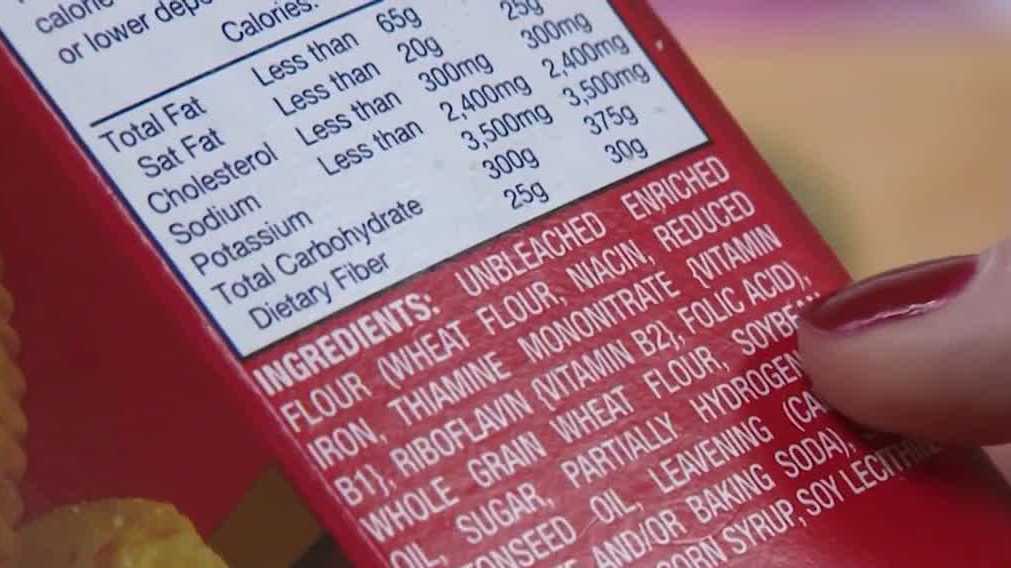With so much conflicting nutrition advice online, it can be difficult to know which foods are truly healthy.Consumer Reports is helping clear up confusion by taking a closer look at some controversial foods and offering tips for making informed choices.When Pilar Ortiz started experiencing discomfort and swelling throughout her body, she turned to her diet for answers.”I started to look into anti-inflammatory diets,” Ortiz said. “The only thing I can do to prevent myself from falling into this black hole is eating foods with simple ingredients.”To separate fact from fiction, Trisha Calvo of Consumer Reports recommends taking a critical look at what you see online, especially on social media.”Be wary of claims that say foods are 100% good or bad or use labels like ‘toxic.’ The truth is rarely that black and white,” Calvo said. Take seed oils, for example. Some critics claim they cause inflammation and may contribute to serious health problems like cancer, heart disease and type 2 diabetes.However, studies show that people with higher levels of linoleic acid, a type of omega-6 fat found in seed oils, have a lower risk of cardiovascular disease. >> Download the free WMUR app to get updates on the go: Apple | Google Play > Subscribe to WMUR’s YouTube channel
MANCHESTER, N.H. —
With so much conflicting nutrition advice online, it can be difficult to know which foods are truly healthy.
Consumer Reports is helping clear up confusion by taking a closer look at some controversial foods and offering tips for making informed choices.
When Pilar Ortiz started experiencing discomfort and swelling throughout her body, she turned to her diet for answers.
“I started to look into anti-inflammatory diets,” Ortiz said. “The only thing I can do to prevent myself from falling into this black hole is eating foods with simple ingredients.”
To separate fact from fiction, Trisha Calvo of Consumer Reports recommends taking a critical look at what you see online, especially on social media.
“Be wary of claims that say foods are 100% good or bad or use labels like ‘toxic.’ The truth is rarely that black and white,” Calvo said.
Take seed oils, for example. Some critics claim they cause inflammation and may contribute to serious health problems like cancer, heart disease and type 2 diabetes.
However, studies show that people with higher levels of linoleic acid, a type of omega-6 fat found in seed oils, have a lower risk of cardiovascular disease.
>> Download the free WMUR app to get updates on the go: Apple | Google Play
“We’ve known for decades that these oils cut bad cholesterol, among other benefits. What may be a legitimate concern with seed oils is that they are used heavily in many ultra-processed foods,” Calvo said.
Raw milk is another product making headlines. Some claim it’s more nutritious than pasteurized milk, but there’s no evidence to support that.
In fact, raw milk can carry harmful bacteria like Listeria and E. coli, bacteria that pasteurization is designed to eliminate.
Nightshade vegetables, including tomatoes and peppers, are also controversial. They contain a compound called solanine, which some believe triggers inflammation, but experts say the concern is overstated.
“The solanine content is very low, and its link to inflammation isn’t conclusive. Plus, these veggies are packed with a variety of antioxidants which fight inflammation, so you should be cautious about ruling out a whole group of vegetables,” Calvo said.
Consumer Reports encourages anyone seeking health to rely on credible sources. Experts with credentials such as RD, MD or Ph.D., especially those affiliated with hospitals, universities or reputable agencies, are more likely to provide trustworthy information.
>> Subscribe to WMUR’s YouTube channel
